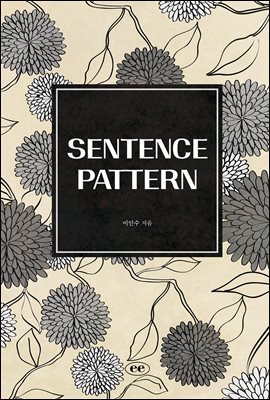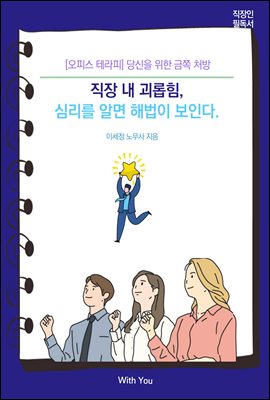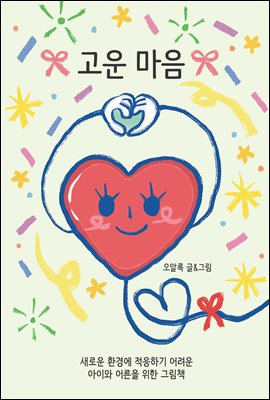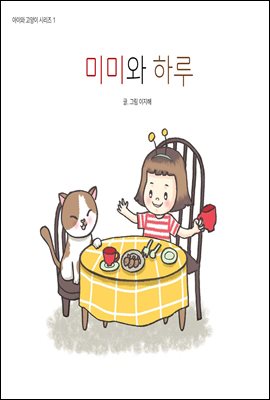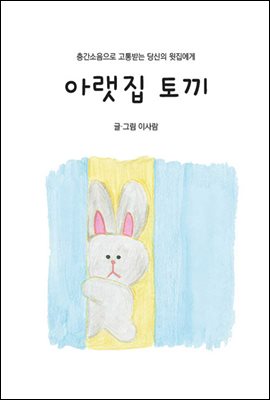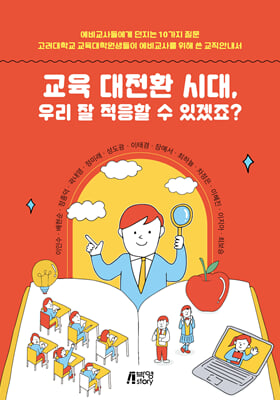책소개
동사는 변화무쌍하게 쓰입니다. 그러나 동사들은 일정한 pattern을 따라 움직입니다. 이 pattern을 알아야 합니다. 동사는 거의가 자동사와 타동사가 함께 쓰입니다. 자동사로 쓰일 때는 물론 목적어를 받지 못하지요. 자동사는 스스로 문장의 뜻이 완성되기도 하고, 보어를 수반하기도 합니다. 타동사는 목적어를 받는데 목적보어를 동반해야만 문장의 뜻이 완성되는 경우도 있습니다.
동사는 여러가지 의미로 쓰이는데 쓰이는 뜻에 따라 목적어, 보어, 분사, 부정사, 전치사, 구, 절 등의 하나 또는 두개이상을 동시에 받습니다. 동사마다 이러한 목적어와 보어를 어떻게 받는지가 거의 결정되어 있습니다. 동사가 이러한 목적어와 보어를 받는 형식을 체계적으로 분류해 놓은 것이 바로 pattern(문형)입니다.
예를 들어I suggested him to bring the meeting to an end라는 문장은 우리 말로 ‘회의를 끝내자고 그에게 제안했다’ 라는 뜻으로 쓴 것이지만, 문형으로 볼 때 틀린 문장입니다.
suggest는 간접 목적어를 앞에 취할 수 없고 목적 보어로 infinitive를 취하지 않습니다.
이 문장은 I suggested (to him) that we bring the meeting to an end라고 해야 합니다.
즉, 간접 목적어 앞에 to를 넣어서 쓰던가, 아니면 to him을 문장 뒤로 보내야합니다.
결국 suggest는 목적어로 infinitive를 받지 않으며 that절만 받습니다.
그러나 다음 문장을 보세요.
I encouraged him to continue in his efforts. 나는 그에게 계속 노력하도록 격려해주었다.
이 문장에서 encourage는 간접 목적어를 취합니다. 따라서 문형에 맞게 사용되었습니다. 이처럼 모든 동사는 각각 사용되는 문형이 정해져 있기 때문에 동사들이 어떤 문형으로 사용되고, 어떤 문형으로는 사용될 수 없는 것인지 알아야 합니다. 문형에 맞지 않는 문장을 함부로 만들어 쓸 수는 없습니다.
또 문장들은 하나의 문형에서 전치사를 이용하여 다른 문형으로 변형시켜 쓸 수 있습니다. I asked him a question. 나는 그에게 질문을 했다. 이는 다음과 같은 문장으로 변형이 가능합니다. I asked a question of him. (o) (변형이 가능합니다)
그러나 다음 문장에서 보듯이 변형이 안되는 동사들도 있습니다.
The house cost him a great deal of money. (o) 그 집에 돈이 많이 들었다.
The house cost a great deal of money to him. (x) (변형이 안 됩니다)
이는 변형이 되는 동사가 있는가 하면 변형이 안되는 동사들이 있기 때문입니다. 또 동사들은 to do 와 doing을 다같이 받는 동사들이 있는가 하면 어느 하나만을 받는 동사들도 있습니다.
They continued to sing. 노래를 계속했다.
They continued singing. (doing도 받습니다)
continue는 to do 와 doing을 다같이 받습니다. 그러나 모든 동사가 다 이처럼 to do와 doing을 함께 목적어로 취하는 것은 아닙니다.
자동사의 경우를 예로 들면[s+v], [It+v], [There+s+v], [It+v+that/(p+n) +that/to do/doing/wh-clause/(adv./prep)], [s+구 자동사v], [s+v+p+n] 등의 pattern 으로 쓰입니다. 이들의 용례는 다음과 같습니다. 기본적으로 이런 것들을 알아야 영어를 자연스럽게 구사할 수 있게 되는 것입니다..
1. [s+v] The tap will not turn.
v는 완전자동사
1a. [s+v] I will begin.
v는 자동사, v만으로 문장이 완성
1b. [It+v] It blows.
It 은 막연히 날씨, 상황 등을
1c. [There+s+v] There arose suspicion of his honesty.
there는 허사
1d. [It+v+that/(p+n) +that/to do/doing/wh-clause/(adv./prep)] It happened that I had no money with me.
It은 가주어로 that/(p+n)+that /to do/doing/wh-clause/(adv./prep)을 대표
1e. [s+v] The engine has burned out.
v는 구자동사(phrasal verb)
1f. [s+v+p+n] They agreed on the terms.
v는 (p+n)을 받는 자동사
1f (1). [s+v+p+n] I apologized for the late departure.
v는 (p+n)을
1f (2). [s+v+p+n+to do/doing] We advertised for a girl to take care of our c hildren.
v는 (p+n+to do/doing)을
1f (3). [s+v+p+doing] They argued against bringing back the death penalty.
v는 (p+doing)을
1f (4). [s+v+p+n] Are we all agreed on this?
v는 특정 조건하에
1f (5). [s+v+p+n] He didn't measure up to the job
v는 구자동사(intransitive phrasal verb)로 (p+n)을
1f (6). [s+v+p+(p+n)] She called out to her father for help
v는 전치사와 결합한 자동사로 (p+n)을
1f (7). [s+v+p+n] She's in good health.
v는 be 동사
1g. My papers are blowing out.
수동태처럼 쓰이는 동사
목차
들어가는 말
일러두기
해설
제1장
1. [s+v] The tap will not turn.
v는 완전자동사
1a. [s+v] I will begin.
v는 자동사, v만으로 문장이 완성
1b. [It+v] It blows.
It 은 막연히 날씨, 상황 등을
1c. [There+s+v] There arose suspicion of his honesty.
there는 허사
1d. [It+v+that/(p+n) +that/to do/doing/wh-clause/(adv./prep)] It happened that I had no money with me.
It은 가주어로 that/(p+n)+that /to do/doing/wh-clause/(adv./prep)을 대표
1e. [s+v] The engine has burned out.
v는 구자동사(phrasal verb)
1f. [s+v+p+n] They agreed on the terms.
v는 (p+n)을 받는 자동사
1f (1). [s+v+p+n] I apologized for the late departure.
v는 (p+n)을
1f (2). [s+v+p+n+to do/doing] We advertised for a girl to take care of our c hildren.
v는 (p+n+to do/doing)을
1f (3). [s+v+p+doing] They argued against bringing back the death penalty.
v는 (p+doing)을
1f (4). [s+v+p+n] Are we all agreed on this?
v는 특정 조건하에
1f (5). [s+v+p+n] He didn't measure up to the job
v는 구자동사(intransitive phrasal verb)로 (p+n)을
1f (6). [s+v+p+(p+n)] She called out to her father for help
v는 전치사와 결합한 자동사로 (p+n)을
1f (7). [s+v+p+n] She's in good health.
v는 be 동사
1g. My papers are blowing out.
수동태처럼 쓰이는 동사
제2장
2.[s+v+c]. She became what she wanted to be.
v는 보어(complement)를 받는 불완전자동사(incomplete intransitive verb)
2a.[s+v+c]. He will make a good husband.
v는 명사/형용사를 보어로
2a (1). [s+v+c]. She came out first in the exam.
v는 become 부류동사
2a (2). [s+v+c] This is a book.
v는 be 부류동사
2a (3). [s+v+c] The meadow looked pleasant.
v는 look 부류동사
2a (4). [s+v+c] He is the greatest actor that has ever lived.
수식어 that을 사용
2a (5). [s+v+c] He remained undisturbed.
v는 done 및 done 형태의 형용사를 보어로
2b. [s+v+c+to do/that/(p+n)]. He is sure to come.
v는 c 다음에 to do/that/(p+n)을
2b (1). [s+v+c+to do]. He was able to do the work.
to do는 c의 범위를 제한하거나 그 대상/c에
대한 원인이거나 그 이유
2b(1)(a). [s+v+c+to do]. He was afraid to see her.
to do는 c의 범위를 제한하거나 그 대상
2b(1)(b). [s+v+c+to do]. You would be well
advised to stay home today.
to do는 c에 대한 원인이거나 그 이유
2b (2). [s+v+c+that]. I'm glad that you like it.
v는 c다음에 전치사구와 대등한 부사절인
that절을
2b(2)(a). [s+v+c+that] I'm convinced that the war could come.
v는 (p+n)을 that절로 바꿔
2b(2)(b). [s+v+c+that] He was angry that he had not won the race.
that절은 부사절로 c에 대한 원인이거나 그 이유
2b(2)(c). [s+v+c+that] I was so tired that I could hardly work.
that절은 부사절로 c에 대한 결과나 그 정도를
2b(2)(d). [s+v+c+that] He must be hurt that he (should) react like that.
that절은 부사절로 판단의 근거를
2b(2)(e). [s+v+c+that] She was not sick thatI know of.
that절은 부정의 주절 다음의 제한절, 양보/사정을 나타내는 절, 가정법을 수반해서 기원 등을 나타내는 절
2b(2)(f). [s+v+c+to do/that] I am determined to succeed.
c는 done 및 done 형태의 형용사, to do/that은 c 의대상, 원인, 이유 등
2b (3). [s+v+c+(p+n)/(p+doing)/(p+wh-word)] He looked astonished at the news.
v는 be, 감각동사 등이며, c는 done, (p+n)/(p+doing)/(p+wh-word))은 c의 원인
2b(3)(a). [s+v+c+p+n] We were amazed [at/by] his generosity.
c는 done 및 done 형태의 형용사, (p+n) 은 c의 원인 등
2b(3)(b). [s+v+c+(p+doing)] The book is worth reading.
v는 be 동사, c는 done 및 기타 형용사, (p+doing) 은 c의 원인 등
2b(3)(c). [s+v+c+(p+wh-clause)] She is doubtful (about) whether she can get over the difficulty.
v는 be 동사, c는 형용사, wh-clause 은 c의 원인
2b(3)(d). [s+v+c+to do/that/(p+n)/(p+doing)/(p+wh-word)]
I felt almost shamed that I've been so lucky.
v는 be, become, look 부류동사, c는 done, to do 등은 c의 대상, 원인, 이유
2c. [s+v+to do] We agreed to join them.
v는 to do를
2c (1). [s+v+to do] I awoke to find myself famous.
v는 자동사
2c (2). [s+v+to do] He set out to paint the whole
house but finished only the front part,
v는 구자동사
2c (3). [s+v+ to do] Don't bother to fix a lunch
for me.
v는 to do, doing. that을
2c (4). [s+v+to do] Nobody is to know.
v는 be동사
2c (5). [s+v+to do] The experiment proved to be successful.
v는 to be 다음에 보어를
2c(5)(a). [s+v+to be+c] He appears to be afraid.
to be를 생략할 수 없는 경우
2c(5)(b). [s+v+ (to be) +c] This appears (to be) important.
to be를 생략할 수 있는 경우
2d.[s+v+doing] The children came running to see me.
v는 자동사/구동사
2d (1). [s+v+doing] Don't go breaking any more things.
v는 자동사
2d (2). [s+v+doing] I ended up doing all the work myself.
v는 구동사
2e.[s+v+that] My opinion is (that) he really dosn't understand.
v는 be 동사
2e (1). [s+v+that] I never doubted that you should succeed.
v는 자동사
2e (2). [s+v+that] My opinion I s (that) he reallydoesn't understand you.
v는 be동사
2f. [It+v+c+that] It appears true that she will win.
It은 가주어로 that을 대표
2f (1). [It+v+c+that/to do/wh-word] It became clear that he was lying.
It은 가주어, v는 자동사
2f (2). [It+v+c+that] It was lucky that you left when you did.
It은 가주어, v는 be동사
2f(2)(a). [It+be+c+that/if /wh-word] It's doubtful whether he'll be able to come.
It은 가주어, c는 명사/형용사
2f(2)(b). [It+be+c+that/if/wh-word] It may be safely affirmed that we all like him.
It은 가주어, c는 done
2f(2)(c). [It+be+c+that/if/wh-word] It is essential that they (should) supply food and drink.
It은 가주어, that절속의 should를 생략
2f (3). [It+be+c+to do/doing] [How/What a+c (it+be) +to do/doing]
It is a good idea [to open/opening] a bank account/How nice (it is) to open a bank account.
It은 가주어, be동사를, c다음에 to do/doing을
2f(3)(a). [It+be+c+to do] It is so nice to sit here with you.
It은 가주어, c다음에 to do를
2f(3)(b). [How/What (a)+c+ (it be) +to do] What a pity (it is) to waste them.
How/What이 앞으로, it은 가주어로 생략
2f(3)(c). [It +be+ +doing] It was difficult business getting everything ready in time.
It은 가주어, c다음에 doing을
2g. [It+be+c+p+n+to do] It is careless of him to touch the dog.
It은 가주어로 (p+n+to do)를 대표
2g (1). [It+be+c+p+n+to do] [How/what+c+p+n+to do] How nice of you (it is) to accompany us.
It은 가주어, (p+n) 에 (of+you/him/her)를
2g (2). [It+be+c+p+n+to do] It'll be quite all right for you to leave early.
It은 가주어, (p+n) 에 (for+you/him/her)를
2g (3). [It+be+c+for+n+to do] It is convenient for you to catch a train.
It은 가주어, n이 주어가 되면 주격보어로 올 수 없는 c (형용사)
2h. [It+v+c] It grew dark.
It은 막연히 날씨, 한란, 일시, 명암, 거리, 사정 등에
2h (1). [It+v+c] It's getting warm.
It은 명암 등에
2h (2). [It+v+c] It's a beautiful day.
It은 날씨, 한란 등에
2h (3). [It+v+c] What time is it?
It은 일시 등에
2h (4). [It+v+c] It's eight miles from here to
Seoul.
It은 막연히 거리를 나타내어
2h (5). [It+v+c] It's your turn.
It은 막연히 사정, 상황을 나타내어
2h (6). [It+v+c] Go and see who it is.
It은 사물, 행동을 나타내어
2i.[s+v+there+c] What more is there to say?
허사 there와 함께
2j.[s+v+adv./prep.] He lives here.
v는 부사 또는 전치사구를 보어처럼
2j (1). [s+v+adv./prep.] The car was burning down the road.
v는 부사, 전치사구를 보어처럼
2j (2). [s+v+adv./prep.] The company is steaming ahead with it’s invest program.
v는 부사와 전치사구를 동시에
2j (3). [s+v+adv./prep.] She hastened home.
v는 부사를 보어처럼
2j (4). [s+v+adv./prep.] The storm lasted (for) two hours.
v는 부사적 용법의 명사를
2j (5). [s+v+adv./prep.] I came out in the top.
v는 구동사
2j (6). [s+v+adv./prep.] I feel as if my leg were broken.
v는 장소, 방법, 조건 등의 부사를 보어처럼
제3 장
3.[s+v+o] He cleared his throat.
v는 목적어를 받는 완전타동사
3a.[s+v+o] Nobody answered my question.
v는 타동사, 명사, 대명사를 목적어로
3a (1). [s+v+o] She has born a child to him.
[s+v+io+do]가 [s+v+o+p+n]으로 변형된 것
3a (2). [s+v+o+p+n] Please advise us of the date.
v는 타동사, (p+n) 은 일정한 전치사와 명사
3a (2)(a). [s+v+o+p+n] I'm going to interview her about her music.
v는 타동사, p+n은 일정한 전치사와 명사
3a (2)(b). [s+v+o+p+n] I explained the impossibility of granting his request to him.
v는 타동사, n은 간접목적어
3a(2)(c). [s+v+o+p+n] I sounded him out about a job.
v는 구타동사, (p+n) 은 일정한 전치사와 명사
3a(2)(d). [s+v+o+p+doing] I will assist you in finding somewhere to live.
v는 타동사, (p+n) 대신 (p+doing)을
3a (3). [s+v+o] He was had up for manslaughter.
v는 수동태로
3a (4). [s+v+o] Have you hurt yourself?
v는 수동태로 안 됨
3a (5). [It+v+o+(p+n) +to do/that/wh-word] It concerns him to know that his wife is sick.
It은 가주어로 to do를 대표
3a (6). [s+v+it+(p+n) +that] He'll have it that he is innocent.
it은 가목적어로 that을 대표
3a (7). [It+v+o] It takes a lot of time and trouble.
It은 무의미한 형식상의 주어
3a (8). [s+v+it] I made it.
it은 무의미한 형식상의 목적어
3a(8)(a). [s+v+o+p+it] I had a hard time of it.
it은 전치사의 무의미한 목적어
3a(8)(b). [n+it] Cab it.
n은 명사, 명사를 임시동사로, it은 무의미한 형식상의 목적어
3a(8)(c). [s+v+it] Let's walk it.
it은 어떤 동사의 무의미한 형식적인 목적어
3a (9). [s+v+it] If you find it in the room, bring me the new stapler.
it은 앞뒤의 구, 절, 또는 그 안의 사물을 대표
3a (10). [s+v+o] Large print makes for easy reading.
v는 구타동사
3a(10)(a). [s+v+o] He will back me up.
구타동사의 부사가 분리됨
3a(10)(b). [s+v+o] They battened down the hatches.
구타동사의 부사 분리 안 됨
3a(10)(c). [s+v+o] Responsibility for his family bears down on a young man.
구타동사가 (동사+부사+전치사)형
3b. [s+v+to do] Can you afford to lend me some money?
v는 타동사
3b (1). [s+v+to do] I managed to get there in time.
v는 to do만을
3b (2). [s+have/ought+(not)+to do] You'll have to go/You ought (not) to complain.
v는 have, ought
3c. [s+v+doing] We stopped talking.
v는 doing을
3c (1). [s+v+doing] I advise waiting till the proper time.
v는 타동사
3c (2). [s+v+to do/doing] He begrudged [to help/helping] me.
v는 to do/doing을
3c (3). [s+need/want+doing] [s+won't/wouldn't bear+ doing] The garden needs watering.
doing은 수동의 뜻
3d.[s+v+that] I think that he is an honest man.
v는 that절을
3d (1). [s+v+that] He boasts [of being/that he isrich.
(p+n)이 that절로
3d (2). [s+v+that] I accept that the evidence is unsatisfactory.
v는 that절만을
3d (3). [s+v+that/doing] I recommend [that he read/reading] the book before seeing the movie.
v는 that/doing을
3d (4). [s+v+that/to do] They agreed that they should/to] leave at once.
v는 that/to do를
3d (5). [s+v+that/doing/to do] He deserves [that we should help/helping/to have us help] him.
v는 that/doing/to do를
3d (6). [s+v+doing/to do] Don't forget to attend the meeting.
v는 과거, 현재, 미래에 따라 that/doing/to do를
3d (7). [s+v+that/doing/to do] I allow to go.
v는 쓰이는 의미에 따라 that절/doing/to do를
3d (8). [s+v+(that)] He admitted (that) he was wrong.
v는 that절에서 that를 생략
3d (9). [s+v+that~(should)] I arranged that I (should) see her first.
v는 that절에서 should를 생략
3d (10). [s+v+(p+n) +that] They acknowledged (to us) that they were defeated.
v는 that절 앞의 간접목적어를 생략
3e. [s+v+wh-to do] She couldn't decide where to go.
v는 wh-to do를
3f. [s+v+wh-clause] I don't know who she is.
v는 wh-clause를
제4 장
4.[s+v+o] Bring me the book.
v는 두개의 목적어를
4a.[s+v+io+do] He asked him several questions.
v는 간접목적어와 직접목적어를
4a (1). [s+v+o+o] Have they payed you the money?
v는 to를 이용[s+v+o+p+n]으로 변형가능
4a (2). [s+v+o+o] A charming story was told (to us) by the speaker.
v는 수동태 가능
4a (3). [s+v+o+o] Will you find me a good job?
v는 to 이외의 전치사를 이용 [s+v+o+p+n]으로 변형가능
4a (4). [s+v+o+o] The work cost him his health.
v는 [s+v+o+p+n]으로 변형불가
4a (5). [It+v+io+do+to do] It gives me great pleasure to meet you again.
It은 가주어로 to do를 대표
4a (6). [s+v+io+do] Could you give me back my pen?
v는 구 동사
4b. [s+v+o+that] Experience taught me that honesty pays.
o는 간접목적어, that절은 직접 목적어
4b (1). [s+v+ㅇ+that] He promised me that he would be home for dinner.
that절이 직접목적어
4b (2). [s+v+o+that] I assure you that your son has nothing to do with the matter.
v는 (p+n)을 that절로
4c. [s+v+o+wh-to do] I showed them how to handle the machine.
wh-to do가 직접목적어
4d. [s+v+o+wh-clause/how/as if/as though] Tell me what your name is.
wh-clause가 직접목적어
제5 장
5.[s+v+o+c] We found the business pay.
v는 목적어와 보어를 받는 불완전 타동사
5a.[s+v+o+do] What would you have me do?
v는 do를 보어로
5a (1). [s+v+o+do] I saw the man cross the road.
v는 지각동사, 감각동사
5a (2). [s+v+o+do] I made him leave the room.
v는 사역동사
5a (3). [s+v+o+do] Children are making believe that they are pirates.
v는 연달아 동사를
5a (4). [s+v+o+do] I am bidden by conscience to speak.
v는 수동태로
5b. [s+v+o+to do] Did you advise your brother to accept the order?
v는 to do를 보어로
5b (1). [s+v+o+to do] I was warned not to believe a word he says.
v는 수동태 가능
5b (2). [s+v+o+to do] We count on you to help us.
v는 구타동사
5c.[s+v+o+doing] They saw the thief running away.
v는 doing을 보어로
5c (1). [s+v+o+doing] Can you smell
something burning?
v는 지각동사, 감각동사
5c (2). [s+v+o+doing] I caught him stealing apples from my garden.
v는 지각동사 이외의 동사
5c (3). [s+v+o+doing] I can't understand his leaving so suddenly.
v는 doing앞에 소유격을
5d.[s+v+o+done] He made himself heard across the room.
v는 done을 보어로
5e.[s+v+o+c] We appointed him manager.
v는 명사를 보어로
5e (1). [s+v+o+c] He called me a fool.
c는 관사를 붙인 명사
5e (2). [s+v+o+c] They chose him chairman.
c는 관사 없는 명사
5f.[s+v+o+c] Thunder turns milk sour.
c는 형용사
5g. [s+v+o+to be+c] I take him to be honest.
v는 (to be+c)를
5g (1). [s+v+o+to be+c] Do you deny this to be the case?
to be를 사용
5g (2). [s+v+o+ (to be) +c] I believe him (to be) an honest man.
to be를 생략
5h. [It+v+o+c+to do] [s+v+it+c+to do] I find it difficult to believe you.
It은 가주어, it은 가목적어로 모두 to do를 대표
5h (1). [It +v+o+c+to do] It makes me feel good to know that my work is appreciated.
It은 가주어로 to do를 대표
5h (2). [s+v+it+c+to do/doing/that/wh-word] He makes it a rule to take a walk every morning.
it은 가목적어로 to do를 대표
5i. [s+v+o+adv./prep.] The judge brought his hammer down on the table.
v는 adv./prep.을 보어처럼
5i (1). [s+v+o+adv./prep.] Wind bandage around
your finger.
v는 부사및 전치사구를 보어처럼
5i (2). [s+v+o+adv./prep.] Can I run you home?
v는 부사를 보어처럼
5i (3). [s+v+it+(p+n) +to do/that] We must bring it to you to decide whether you should offer it.
it은 가목적어로 to do/that을 대표
일 러 두 기
예문을 빌어 다음과 같이 이 책에서 사용된 기호의 의미를 설명한다.
a. How did you come to know that? 그 걸 어떻게 알게 됐나? (come은to do를 받을 때와that절을 받을 때 의미가 다르게 쓰인다. 여기서 come to는‘~하게 되다, ~하기에 이르다’.)
예문에서 () 속의 내용은 참고적인 설명문이다. ‘, 은 단어의 뜻을 해설할 때 사용했다.
b. They appointed him (to be/as) chairman그를 의장으로 지명했다. 라는 예문 속의 ()는
그 안의 어구를 넣어도 되고 빼어도 된다는 뜻이다. 따라서 예문의 (to be/as)는 to be나 as 중 어느 하나를 사용할 수도 있고, 모두 빼고 쓸 수도 있다는 뜻이다.
c. They agreed [to/that they should] leave at once. 그들은 즉시 떠나자고 의견을 모았다. 위 예문 에서 [] 안의 /는 or 의 뜻으로 양쪽 어구 중 그 어느 하나를 쓸 수 있음을 의미한다.
위 예문에서는 to를 쓸 수도 있고, that they should로 대체할 수도 있다.
d. Everyone counted the boy as[for] lost. 누구나 그 소년이 행방불명된 것으로 생각했다. 이 문장의 []는 그 안의 단어로 대체할 수 있음을 의미한다. 즉, 위문장에서 as 대신 for를 쓸 수 있음을 나타낸다.
e. Permit me a few words/Permit a few words for me. 몇 마디 말하게 해 주십시오. 에 사용된 /는 or의 뜻이다. 즉, 양쪽 문장이 다 같이 쓰인다는 뜻이다.
f.문형에 사용된 약자와 약자가 대표하는 원어는 다음과 같다.
phr.vi: intransitive phrasal verb(자동사구)
phr.vt: transitive phrasal verb(타동사구)
S: subject (주어)
V: verb (동사)
O: object (목적어)
P: preposition (전치사)
N: noun (명사)
C: complement(보어)
to do: infinitive (부정사)
doing: present participle (현재분사)또는, gerund(동명사)
done: past participle(과거분사)
io: indirect object (간접목적어)
do: direct object(직접목적어)
adv./prep: adverb/preposition (부사 또는 전치사구, 부사적 어구)
adj: adjective(형용사)를 표시한다.
[]: pattern(문형)을 표시한다. 문형 이외에서 사용된 모든[]은 위에서 언급된 기호의 의미를 참조할 것.
g. 예시되는 모든 단어와 예문은 alphabet 순서로 기술함을 원칙으로 한다.
